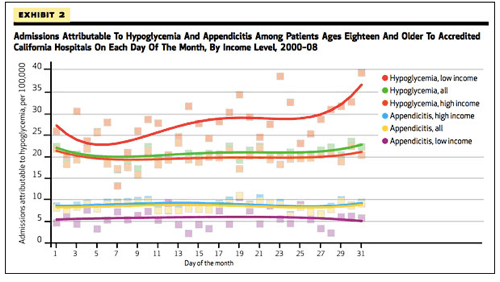Mr. Speaker, Mr. President, Members of the House and Senate, my fellow Americans….
Unfortunately, many Americans live on the outskirts of hope–some because of their poverty, and some because of their color, and all too many because of both. Our task is to help replace their despair with opportunity.
This administration today, here and now, declares unconditional war on poverty in America. I urge this Congress and all Americans to join with me in that effort.
It will not be a short or easy struggle, no single weapon or strategy will suffice, but we shall not rest until that war is won. The richest Nation on earth can afford to win it. We cannot afford to lose it. One thousand dollars invested in salvaging an unemployable youth today can return $40,000 or more in his lifetime.
Poverty is a national problem, requiring improved national organization and support. But this attack, to be effective, must also be organized at the State and the local level and must be supported and directed by State and local efforts.
For the war against poverty will not be won here in Washington. It must be won in the field, in every private home, in every public office, from the courthouse to the White House.
The program I shall propose will emphasize this cooperative approach to help that one-fifth of all American families with incomes too small to even meet their basic needs.
Our chief weapons in a more pinpointed attack will be better schools, and better health, and better homes, and better training, and better job opportunities to help more Americans, especially young Americans, escape from squalor and misery and unemployment rolls where other citizens help to carry them.
Very often a lack of jobs and money is not the cause of poverty, but the symptom. The cause may lie deeper in our failure to give our fellow citizens a fair chance to develop their own capacities, in a lack of education and training, in a lack of medical care and housing, in a lack of decent communities in which to live and bring up their children.
But whatever the cause, our joint Federal-local effort must pursue poverty, pursue it wherever it exists–in city slums and small towns, in sharecropper shacks or in migrant worker camps, on Indian Reservations, among whites as well as Negroes, among the young as well as the aged, in the boom towns and in the depressed areas.
Our aim is not only to relieve the symptom of poverty, but to cure it and, above all, to prevent it. No single piece of legislation, however, is going to suffice.
We will launch a special effort in the chronically distressed areas of Appalachia.
We must expand our small but our successful area redevelopment program.
We must enact youth employment legislation to put jobless, aimless, hopeless youngsters to work on useful projects.
We must distribute more food to the needy through a broader food stamp program.
We must create a National Service Corps to help the economically handicapped of our own country as the Peace Corps now helps those abroad.
We must modernize our unemployment insurance and establish a high-level commission on automation. If we have the brain power to invent these machines, we have the brain power to make certain that they are a boon and not a bane to humanity.
We must extend the coverage of our minimum wage laws to more than 2 million workers now lacking this basic protection of purchasing power.
We must, by including special school aid funds as part of our education program, improve the quality of teaching, training, and counseling in our hardest hit areas.
We must build more libraries in every area and more hospitals and nursing homes under the Hill-Burton Act, and train more nurses to staff them.
We must provide hospital insurance for our older citizens financed by every worker and his employer under Social Security, contributing no more than $1 a month during the employee’s working career to protect him in his old age in a dignified manner without cost to the Treasury, against the devastating hardship of prolonged or repeated illness.
We must, as a part of a revised housing and urban renewal program, give more help to those displaced by slum clearance, provide more housing for our poor and our elderly, and seek as our ultimate goal in our free enterprise system a decent home for every American family.
We must help obtain more modern mass transit within our communities as well as low-cost transportation between them.
Above all, we must release $11 billion of tax reduction into the private spending stream to create new jobs and new markets in every area of this land.
These programs are obviously not for the poor or the underprivileged alone. Every American will benefit by the extension of social security to cover the hospital costs of their aged parents. Every American community will benefit from the construction or modernization of schools, libraries, hospitals, and nursing homes, from the training of more nurses and from the improvement of urban renewal in public transit. And every individual American taxpayer and every corporate taxpayer will benefit from the earliest possible passage of the pending tax bill from both the new investment it will bring and the new jobs that it will create…

